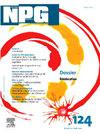Parkinson's disease between old drugs and new digital therapies: A pharmacological review
Q4 Medicine
引用次数: 0
Abstract
Parkinson's disease (PD) is a neurodegenerative disorder characterized by the progressive loss of dopaminergic neurons in the substantia nigra and the accumulation of α-synuclein aggregates. Current pharmacological treatments, including levodopa and dopamine agonists, mainly offer symptomatic relief but do not modify disease progression. The heterogeneity of clinical manifestations and underlying molecular mechanisms has prompted a shift toward personalized medicine and innovative therapeutic strategies. Among emerging approaches, cell-based therapies — such as stem cell transplantation and induced pluripotent stem cells — aim to restore dopaminergic function and are under active investigation in preclinical and early clinical settings. In parallel, digital therapeutics and wearable technologies offer real-time, objective monitoring of motor and non-motor symptoms, enabling more accurate disease tracking and treatment optimization. These digital tools also facilitate remote patient management and adherence to therapy. Artificial intelligence (AI) has become increasingly integrated into PD research and care, with machine learning algorithms demonstrating high accuracy in early disease detection, symptom monitoring, and risk prediction. Notably, AI-based analyses of data from wearable sensors and digital biomarkers have identified prodromal signs of PD years before clinical diagnosis, offering promising avenues for preventive strategies. While no disease-modifying therapies are currently available, combining pharmacological treatments with advanced technologies and a deeper understanding of disease biology may pave the way for more effective and individualized interventions. The integration of AI, digital health, and cell-based therapies is a paradigm shift in the management and future treatment landscape of Parkinson's disease.
帕金森氏病的旧药物和新的数字疗法:药理学综述
帕金森病(PD)是一种神经退行性疾病,其特征是黑质中多巴胺能神经元的进行性丧失和α-突触核蛋白聚集体的积累。目前的药物治疗,包括左旋多巴和多巴胺激动剂,主要提供症状缓解,但不能改变疾病进展。临床表现和潜在分子机制的异质性促使了个性化医疗和创新治疗策略的转变。在新兴的治疗方法中,以细胞为基础的治疗方法——如干细胞移植和诱导多能干细胞——旨在恢复多巴胺能功能,目前正在临床前和早期临床环境中积极研究。与此同时,数字疗法和可穿戴技术提供了对运动和非运动症状的实时、客观监测,从而实现更准确的疾病跟踪和治疗优化。这些数字工具还促进了远程患者管理和治疗依从性。人工智能(AI)越来越多地融入帕金森病的研究和护理中,机器学习算法在早期疾病检测、症状监测和风险预测方面表现出很高的准确性。值得注意的是,基于人工智能的可穿戴传感器和数字生物标志物数据分析已经在临床诊断前几年识别出PD的前驱症状,为预防策略提供了有希望的途径。虽然目前还没有治疗疾病的方法,但将药物治疗与先进技术和对疾病生物学的更深入了解相结合,可能会为更有效和个性化的干预铺平道路。人工智能、数字健康和细胞疗法的整合是帕金森病管理和未来治疗前景的范式转变。
本文章由计算机程序翻译,如有差异,请以英文原文为准。
求助全文
约1分钟内获得全文
求助全文
来源期刊

NPG Neurologie - Psychiatrie - Geriatrie
Medicine-Neurology (clinical)
CiteScore
0.60
自引率
0.00%
发文量
64
审稿时长
34 days
期刊介绍:
Aux confins de la neurologie, de la psychiatrie et de la gériatrie, NPG propose a tous les acteurs de la prise en charge du vieillissement cérébral normal et pathologique, des développements récents et adaptés a leur pratique clinique.
 求助内容:
求助内容: 应助结果提醒方式:
应助结果提醒方式:


